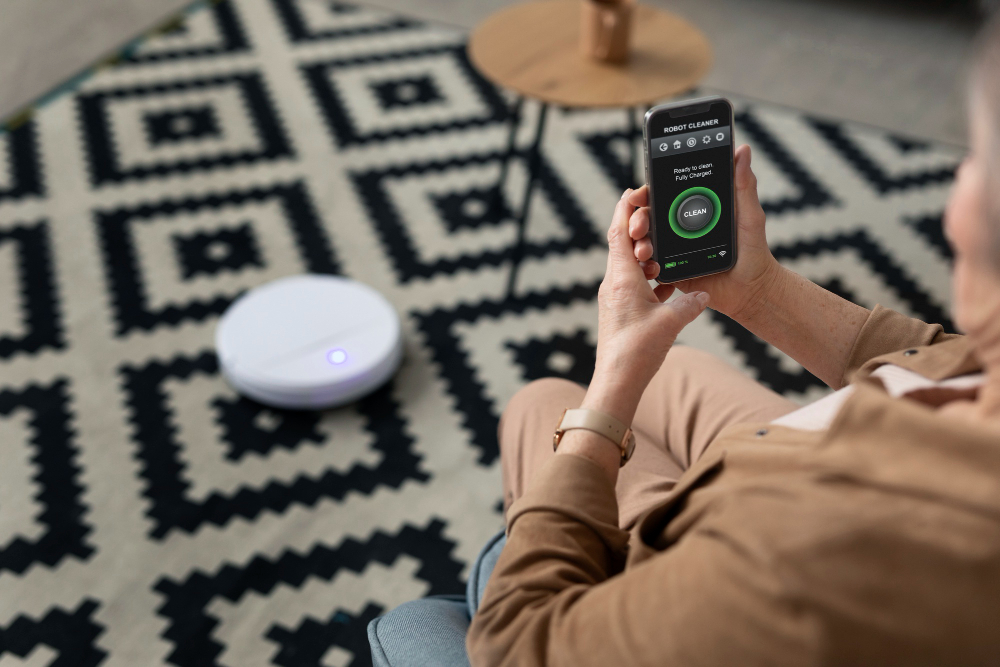See How Insurance Technology Has Already Reached Our Homes!
The concept of “home” has been changing rapidly, with new “residents” like facial recognition cameras, smart thermostats, and sensors.
The so-called smart home is already a reality for millions of Americans—and with it comes a new need: protecting this digital ecosystem with insurance that matches its complexity.

That’s where Smart Home Insurance comes in. But what exactly does that mean for your wallet—and your peace of mind?
What Is Smart Home Insurance?
Smart home insurance is a policy that takes into account the presence of connected technologies in a property to assess risks, offer specific coverage, and even provide discounts.
It’s not an entirely separate insurance category but rather an extension of traditional coverage adapted to the realities of smart homes.
What Technologies Are Considered?
Some of the most common devices that can help you benefit from this type of policy include
- Water leak sensors
- AI-enabled security cameras
- Smart smoke detectors
- Digital locks with remote monitoring
- Light and temperature automation systems
- Virtual assistants like Alexa or Google Home
Besides enhancing security, these devices are risk prevention tools that appeal to insurers.
Financial Benefits
Annual premium discounts
Insurers offer reductions ranging from 5% to 20%, depending on the number and type of devices installed in your home.
Lower risk = lower cost.
Homes equipped with early detection tools have fewer claims, reducing loss ratios and allowing for more affordable premiums.
Faster response = fewer damages.
When a leak or intrusion is detected in real time, these devices can help avoid major damage. This leads to lower compensation payouts and faster reimbursements for policyholders.
A Practical Example
Imagine you’re away on vacation and your sensor detects a leak under the kitchen sink.
An alert is instantly sent to your phone. You either call a plumber or activate an automatic shut-off (in more advanced systems).
The result: minimal damage, no need to file a claim—and your credit score and history with the insurer remain untouched.
The Importance of Data
As technology has advanced, insurers have begun using real-time data to build customer risk profiles.
This means that how often devices are used, how well they’re maintained, and how the resident responds to incidents can directly influence the terms of the policy.
Risks and Precautions
Despite the advantages, smart insurance comes with challenges and concerns:
- Privacy: Some insurers request access to data generated by your devices.
- False promises: not every policy labeled “smart” offers real advantages.
- Tech dependency: a sensor or network failure could compromise expected protection.
That’s why it’s essential to consult a qualified insurance broker and confirm which devices are truly compatible with the insurer’s policy.
How to Get Started
- Assess which devices are already installed—cameras? — Cameras? Smart thermostat? Sensors?
- Check if your current insurer offers discounts or smart home-specific policies.
- Compare plans across different insurersnot all provide the same benefits.
- Update your home’s profile to include smart equipment and connectivity.
- Request quotes with and without smart devices—and see the difference in costs.
With the growth of home automation, smart home insurance is likely to become the norm.
Industry experts project that by 2030, over 70% of American homes will have some form of smart insurance coverage, driven not only by efficiency but also by tax and regulatory incentives.
In addition, there’s the potential for integration with predictive AI, which could recommend behavioral adjustments to increase protection and lower costs—almost like a “personal trainer” for your home’s safety.
Is It Worth the Investment?
Investing in home technology is no longer just about comfort or status—it’s about financial protection.
Smart home insurance represents this new era, where prevention meets innovation to protect not only your property but also your wallet.
So, if you already live in a connected home or plan to modernize your space, consider how smart insurance can work in your favor.
Technology can not only reduce risks but also strengthen your long-term financial security.
